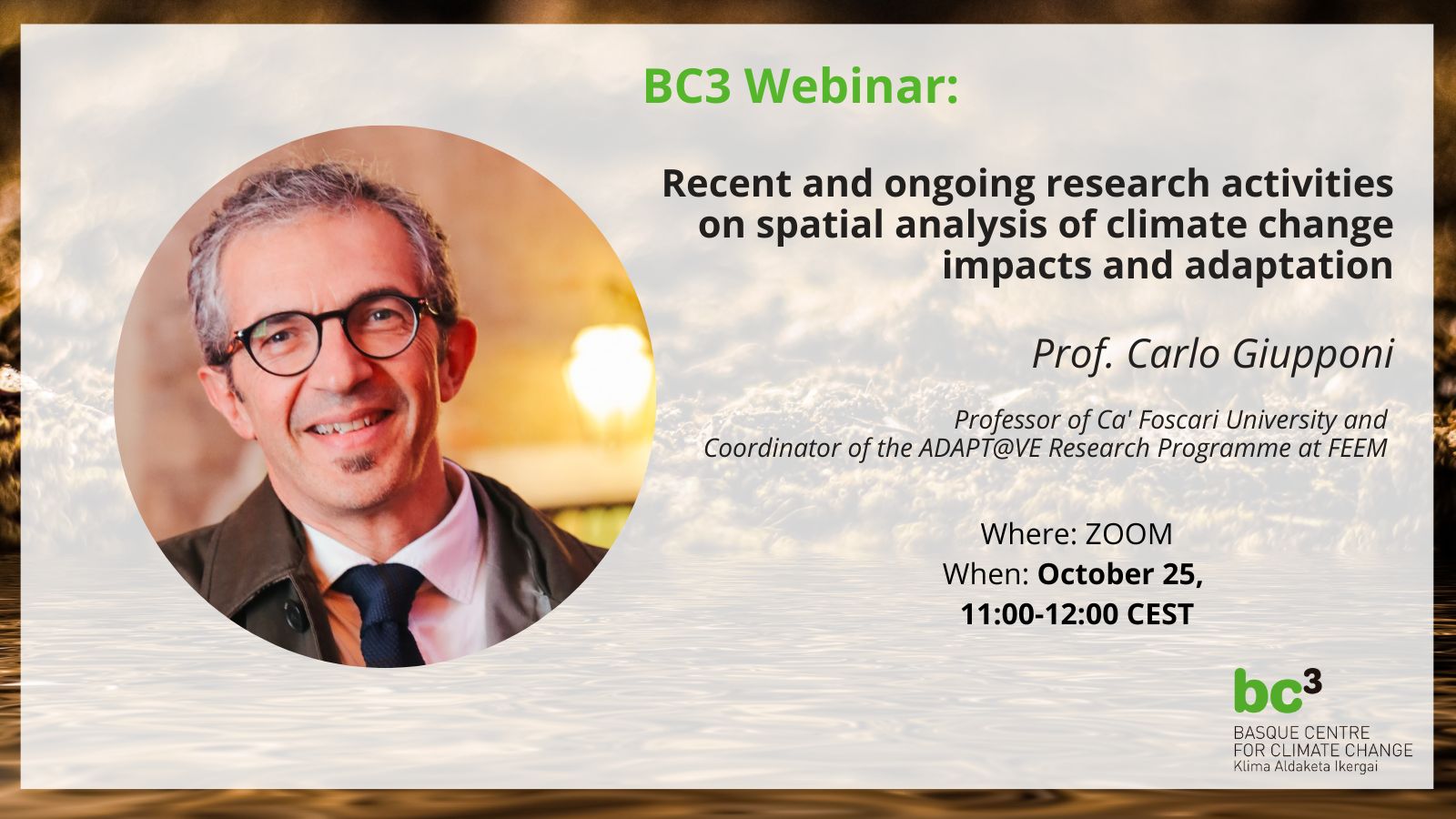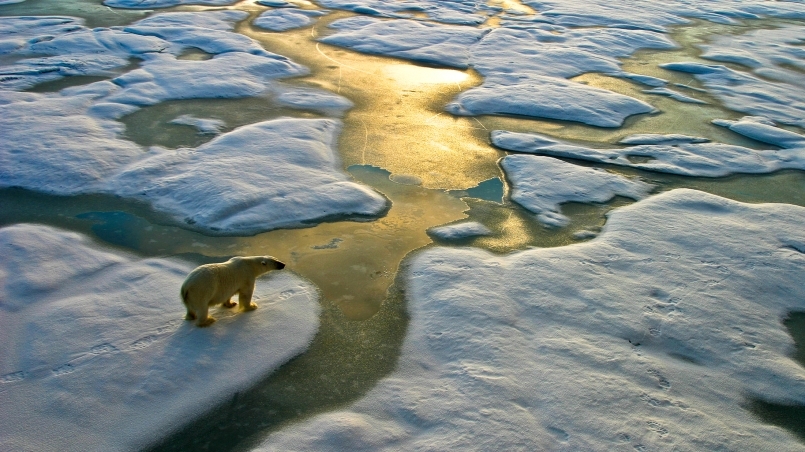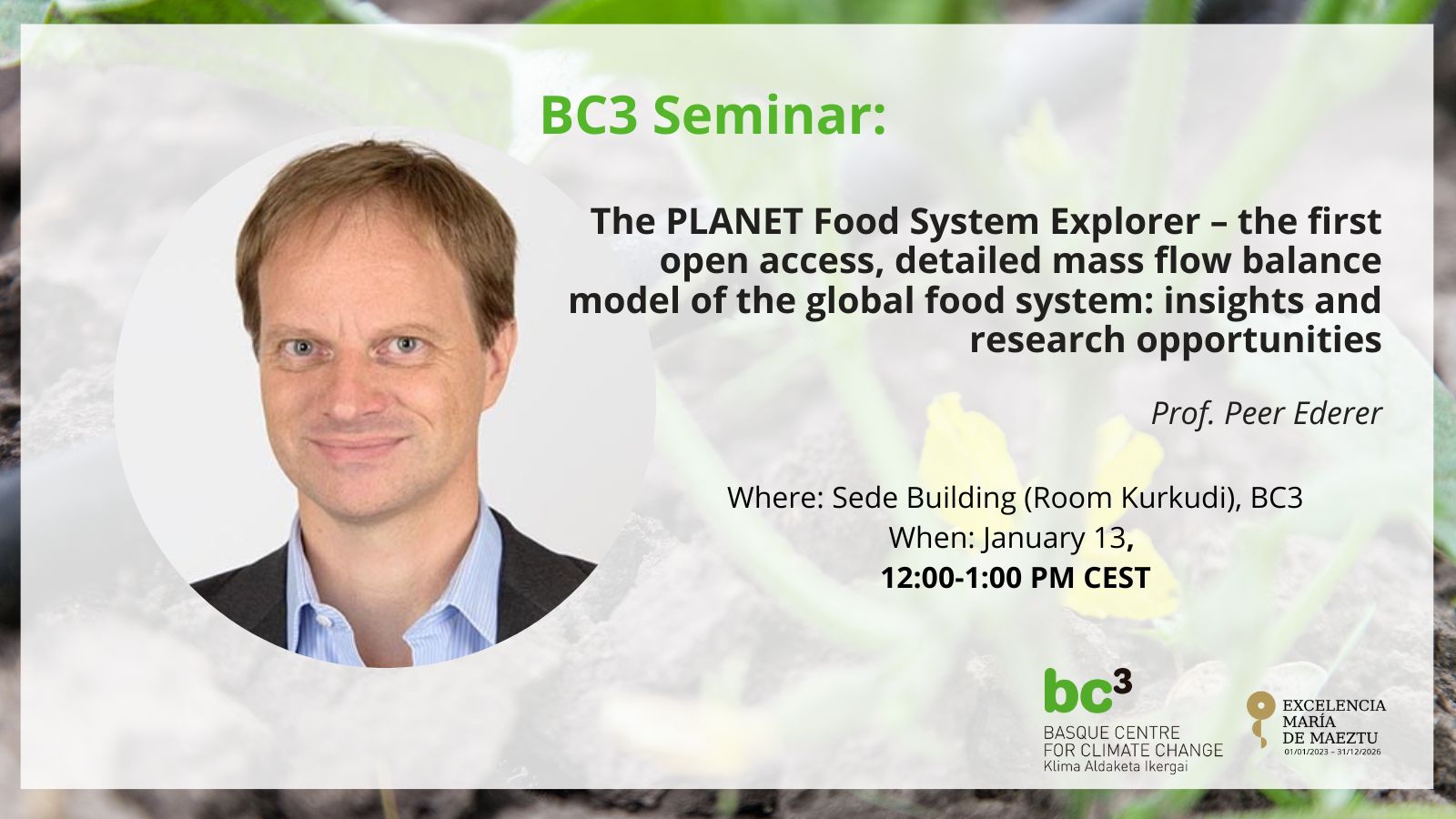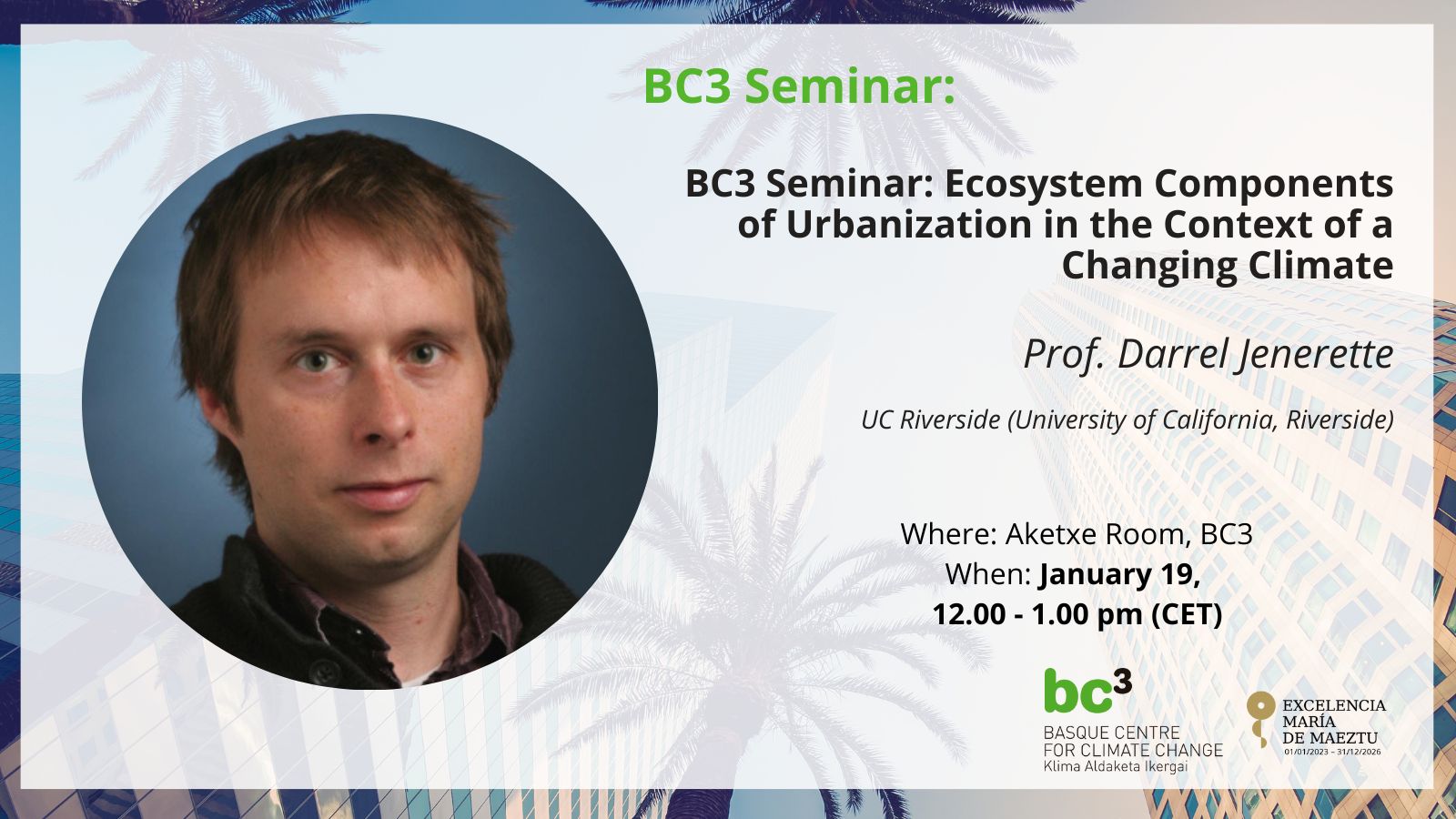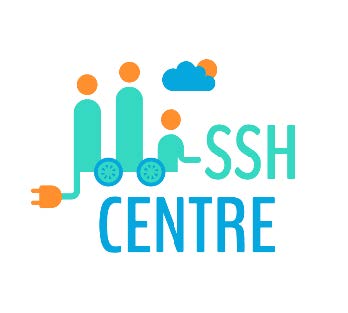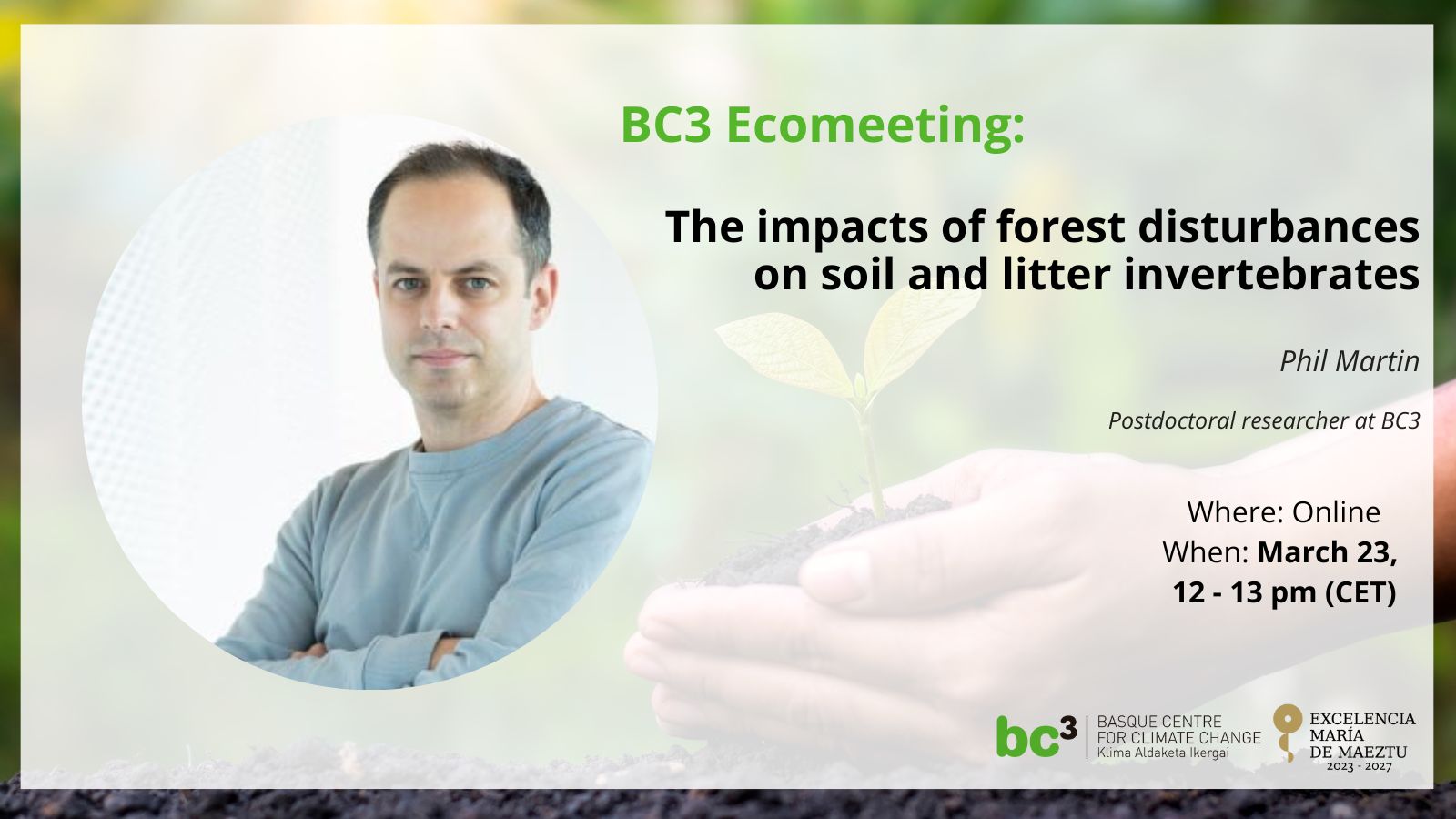Recent and ongoing research activities on spatial analysis of climate change impacts and adaptation
BC3-Basque Centre for Climate Change Sede Building 1, 1st floor, Scientific Park of the University of the Basque Country, Leioa, Bizkaia, SpainI will provide a few examples of research activities sharing the same aim of extracting knowledge from climate modelling to inform and orient human activities, such as planning and investments. The examples have in common a spatially explicit approach and they adopt vaious sorts of data processing and modelling: from simple formulas of map algebra, to multi-criteria analysis, or agent based modelling.
Empirical evidence on the importance of considering equity in incentive based policy instruments for ecosystem services provision
BC3-Basque Centre for Climate Change Sede Building 1, 1st floor, Scientific Park of the University of the Basque Country, Leioa, Bizkaia, SpainIncentive-based policy instruments, such as Reducing Emissions from Deforestation and Degradation (REDD+) and Payments for Ecosystem Services (PES), are at the forefront of global efforts to meet conservation and land use based emissions reduction goals. REDD+ and PES are primarily perceived as instruments aimed at addressing environmental degradation. I
The Lancet Countdown 2022 report on climate change and health – BC3 webinar
BC3-Basque Centre for Climate Change Sede Building 1, 1st floor, Scientific Park of the University of the Basque Country, Leioa, Bizkaia, SpainBC3 is pleased to invite you to an online seminar on November 10, at 11.00 am CET that will present the main highlights of the freshly-released 2022 Europe report of the Lancet Countdown – an international research collaboration that brings together 120 leading experts to monitor how the world’s changing climate is impacting public health.
Klima aldaketari buruzko goi-bilera 2022 (COP27): Aldaketa berririk?
BC3-Basque Centre for Climate Change Sede Building 1, 1st floor, Scientific Park of the University of the Basque Country, Leioa, Bizkaia, SpainWebinar honetan goi-bilera honen alderdi nabarmenenak aztertuko dira, hartutako erabakiak, egindako aurrerapenak eta eragile askoren ikuspegitik ebazteke dauden gaiak barne: akademia, sektore publikoa eta sektore pribatua.
The PLANET Food System Explorer – the first open access, detailed mass flow balance model of the global food system: insights and research opportunities
BC3-Basque Centre for Climate Change Sede Building 1, 1st floor, Scientific Park of the University of the Basque Country, Leioa, Bizkaia, SpainDr. Ederer will present on the workings of the PLANET Food System Explorer, its mass flow balances, and in particular the analysis work we do to assign the different biomass flows to the various species country by country.
Ecosystem Components of Urbanization in the Context of a Changing Climate
BC3-Basque Centre for Climate Change Sede Building 1, 1st floor, Scientific Park of the University of the Basque Country, Leioa, Bizkaia, SpainUrbanization is a major driver of global ecological changes. At the same time, ecological dynamics have a substantial impact on urban residents, which includes more than half of the worldwide population. To explore the reciprocal interactions between urbanization and ecological processes I use the Los Angeles, USA megacity region as a case study.
Tree species mixing as a strategy for adaptation to climate change
BC3-Basque Centre for Climate Change Sede Building 1, 1st floor, Scientific Park of the University of the Basque Country, Leioa, Bizkaia, SpainForest ecosystems are more and more threaten by the increasing biotic and abiotic disturbances triggered by global change. Adapting forest systems to climate change while maintaining their mitigation capacity is the main challenge to achieve a climate smart forestry.
The Solution is Social: How and why to work with the human dimension in climate change research
BC3-Basque Centre for Climate Change Sede Building 1, 1st floor, Scientific Park of the University of the Basque Country, Leioa, Bizkaia, SpainBC3 Seminars "The Solution is Social: How and why to work with the human dimension in climate change research " Dr. Julia Leventon Head of the […]
Southern Voices on Research Geographies a workshop for transition-related Social Sciences & Humanities in Southern Europe
The EU has sought to stimulate research collaborations for decades to enhance synergies among European research communities and to support its own policy goals. However, disparities remain in terms of overall participation, roles within cooperative research and financial contributions received, particularly between the Western/Northern parts of Europe and Southern, Central and Eastern European countries. These differences can be seen in the Framework Programme as a whole, but are also visible across the transition-related thematic areas of climate, energy and mobility.
The impacts of forest disturbances on soil and litter invertebrates
BC3-Basque Centre for Climate Change Sede Building 1, 1st floor, Scientific Park of the University of the Basque Country, Leioa, Bizkaia, SpainHow do disturbances to forests like fires, droughts, storms, and pest outbreaks impact soil and litter invertebrates? We know lots about how these perturbations affect large, cute biodiversity, but this isn’t true for litter and soil dwelling invertebrates – despite their importance for soil functioning.

